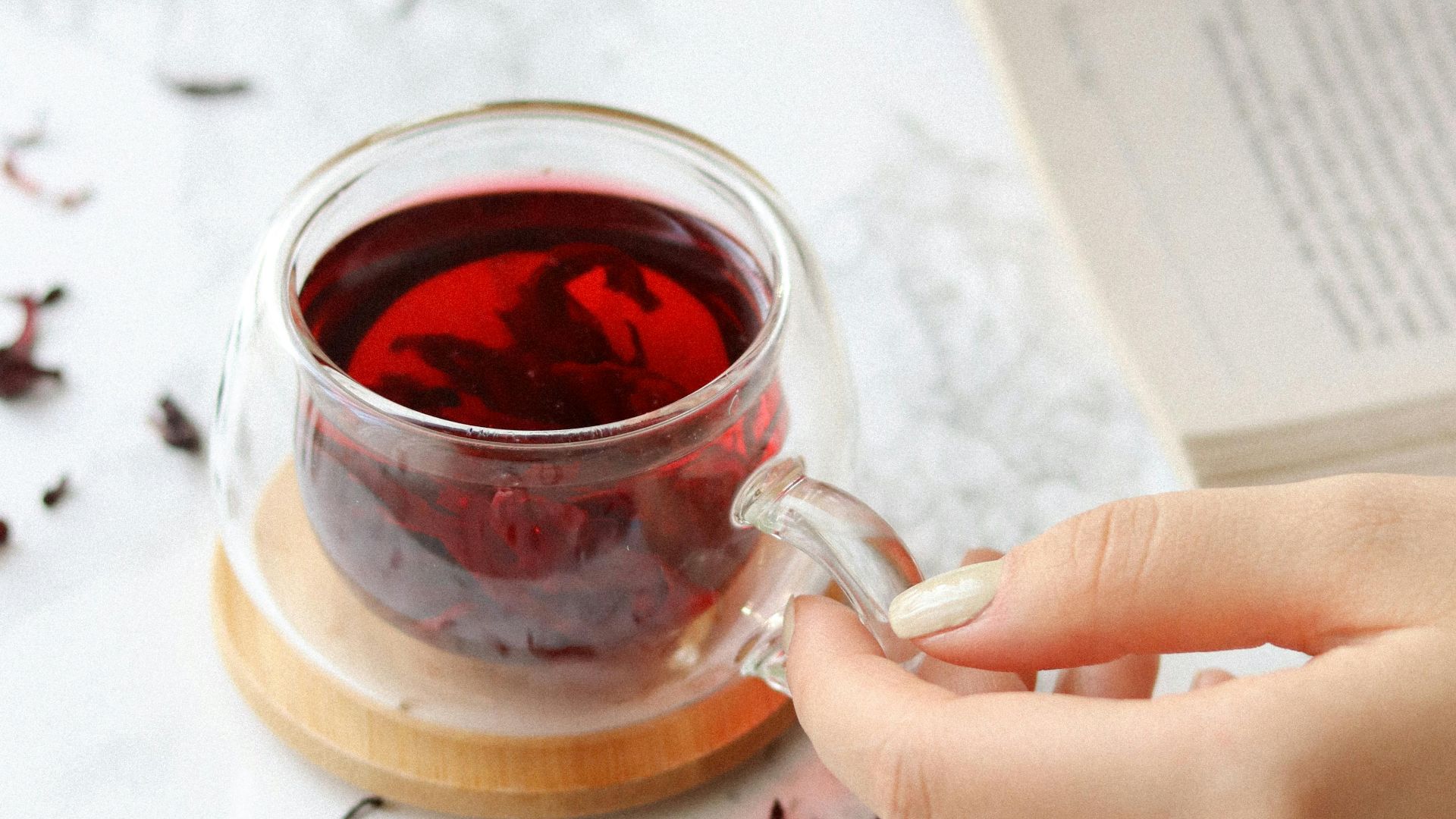When most of us think of hibiscus tea, we imagine a ruby-red drink that feels like a tropical concoction that is equal parts refreshing and delicious. It’s the kind of beverage that looks as vibrant as it tastes, often sipped for calm nighttime rituals. But behind its floral fragrance and tangy taste lies something that’s stirred curiosity among health enthusiasts and scientists alike: its potential to affect estrogen levels.
So, how exactly does a simple cup of hibiscus tea tie into the complex world of hormones? Let’s find out what really happens inside your body when you drink it and what you should keep in mind.
The Hormone Story
To understand hibiscus tea’s potential impact, it helps to first understand estrogen, which is far more than just a “female” chemical. It influences everything from bone density to brain function to skin elasticity, and yes, it plays a major role in reproductive health. It is a part of a delicately balanced endocrine system where even small shifts can create ripple effects. This is where phytoestrogens enter the story.
Phytoestrogens are plant compounds that imitate estrogen in the human body. They’re found in soy, flaxseed, red clover, and, as recent discussions suggest, possibly in hibiscus too. When we consume foods or drinks containing phytoestrogens, they can either enhance estrogenic activity or block it, depending on what the body needs and how much is consumed.
This “balancing act” is why hibiscus tea is often discussed in the context of menstrual regulation, menopausal symptoms, and hormonal mood shifts.
Can Hibiscus Tea Raise Estrogen?
The short answer: not conclusively.
Animal studies have shown that hibiscus extracts might influence estrogen-related activity, but results are mixed. For instance, one study published by PubMed found that hibiscus had mild estrogenic effects in rats, while another one found that it reduced estrogen levels or uterine weight, suggesting an anti-estrogenic action.
The variability might come down to biological context. What works one way in lab animals doesn’t always translate to humans. Science hasn’t caught up to explain all of it, but the plant’s bioactive compounds may indeed play a subtle role in hormone metabolism.
So while hibiscus tea might not drastically “raise” estrogen, it could have a regulating effect by gently supporting hormonal balance rather than pushing it one way.
This aligns with traditional medicine systems, from Ayurveda to African herbal practices, which have long used hibiscus for regulating menstrual cycles and soothing cramps. The tea's natural acids and antioxidants can promote blood flow, while its phytoestrogenic activity may influence uterine muscle tone.
The Bottom Line
The story of hibiscus tea and estrogen is about how something natural and deeply rooted in traditional wisdom can quietly harmonize with your body’s rhythm.
So the next time you steep those crimson petals and watch them swirl into the water, think of it as a small, beautiful reminder of how the body and nature are constantly in conversation.
KEEP ON READING









